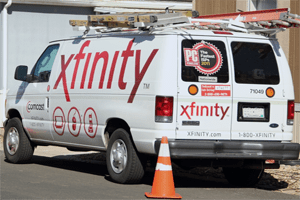
Comcast Charges Fees for Cables Boxes Owned by Customers, Suit Alleges. Comcast is being sued over cable box modem leasing fees. According to a consumer fraud class action lawsuit filed in Florida federal court, the cable and internet provider charges leasing fees for cables boxes that customers personally own. By charging fees that customers do […]

Comcast Charges Fees for Cables Boxes Owned by Customers, Suit Alleges.
Comcast is being sued over cable box modem leasing fees. According to a consumer fraud class action lawsuit filed in Florida federal court, the cable and internet provider charges leasing fees for cables boxes that customers personally own. By charging fees that customers do not owe to Comcast, the company allegedly violates the Florida Deceptive and Unfair Trade Practices Act.
Parker Waichman LLP is a national law firm with decades of experience representing consumers in class action lawsuits over allegedly unfair and deceitful business practices. The firm continues to offer free legal consultations to individuals with questions about filing a Comcast lawsuit.
The class action lawsuit seeks to represent tens of thousands of Comcast customers who were incorrectly billed for cable box leasing fees. The complaints states, “The billing for these fees is immoral, fraudulent, oppressive, inappropriate and not contemplated by any express or implied agreement between plaintiff and defendant,”
The suit seeks restitution and disgorgement of Comcast’s related revenues, punitive damages, costs and attorneys’ fees. The plaintiffs estimate that this will total at least $5 million, the complaint states. Plaintiffs also want the court to stop Comcast from continuing the allegedly unfair billing practice, and to launch a corrective advertising campaign to remedy the issue.
“Plaintiffs contend that Comcast has no right to collect a ‘lease’ on property that it does not own,” according to the lawsuit. “The same problem would be if Comcast tried to collect a ‘lease’ on the houses and cars plaintiffs own or if, for example, Comcast tried to have plaintiffs pay for roof repair at Comcast’s corporate headquarters in Philadelphia.”
Consumers are not the only ones dissatisfied with Comcast’s practices. In August 2016, Washington state filed a $100 million lawsuit alleging that Comcast committed 1.8 million violations of the state’s Consumer Protection Act. The biggest issue, Wired reports, lies with the company’s $4.99 monthly “Service Protection Plan,” Washington attorney general Bob Ferguson’s Office called the fee “near-worthless.”
 Modem Lease Fee Lawsuit Filed Against Time Warner
Modem Lease Fee Lawsuit Filed Against Time WarnerTime Warner Cable, a competitor to Comcast, is also being sued over allegedly unfair leasing fees. A class action lawsuit alleges that the company began charging a “modem lease fee” of $3.95 per month. Plaintiffs say they were only informed of the new fee through a “vague and misleading” postcard. Nine plaintiffs filed the class action suit in February 2013. The suit seeks to represent all Time Warner customers who were billed for a modem lease fee. Subclasses are also being proposed based on different state consumer protection laws.
Time Warner tried to have the case dismissed, but was unsuccessful. U.S. District Judge Allyne R. Ross issued an order denying the company’s bid to toss the case, upholding allegations. According to court records, contrary to Time Warner’s arguments, the plaintiffs’ claims are not precluded because their monetary relief claims were resolved through private arbitration.
There is a private arbitration clause in Time Warner’s residential subscriber agreement. Therefore, Judge Ross sent the individual plaintiffs to private arbitration in 2013. Two plaintiffs won arbitration claims based on breach of contract. All other claims were won by Time Warner. The customers who did win the arbitration were compensated modestly.
After amending their complaint, suing for equitable relief, the customers brought their allegations back to court. In trying to have the case dismissed, Time Warner argued that plaintiffs cannot relitigate because their claims were already submitted through private arbitration. The company also claimed that the plaintiffs’ allegations inadequately support claims for equitable remedies.
All of Time Warner’s arguments were rejected by Judge Ross, who said there was no legal basis for claiming that a plaintiff cannot relitigate due to an arbitration decision. There is a related legal concept known as res judicata, which prevents plaintiffs from relitigating if their issue was resolved in court. However, res judicata does not apply to arbitration.
Time Warner cited a doctrine resembling res judicata to support its arguments, but Judge Ross determined that the company did not show “with clarity and certainty” that plaintiffs’ allegations are the same as the ones resolved in private arbitration.
Both Time Warner and Comcast have a poor reputation in terms of customer service. Time Warner was named the most-hated company in America in 2014. Similarly, Comcast has ranked at the bottom of 24/7 Wall St.’s annual customer satisfaction poll for seven consecutive years.
The personal injury attorneys at Parker Waichman LLP offer free, no-obligation case evaluations. For more information, fill out our online contact form or call 1-800-YOURLAWYER (1-800-968-7529).
Our lawyers for Class Action lawsuit are here to help you when you need it the most.


